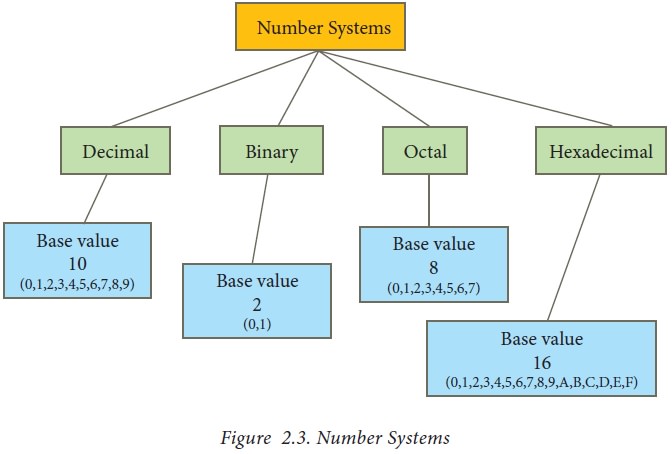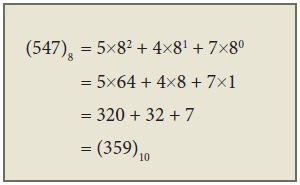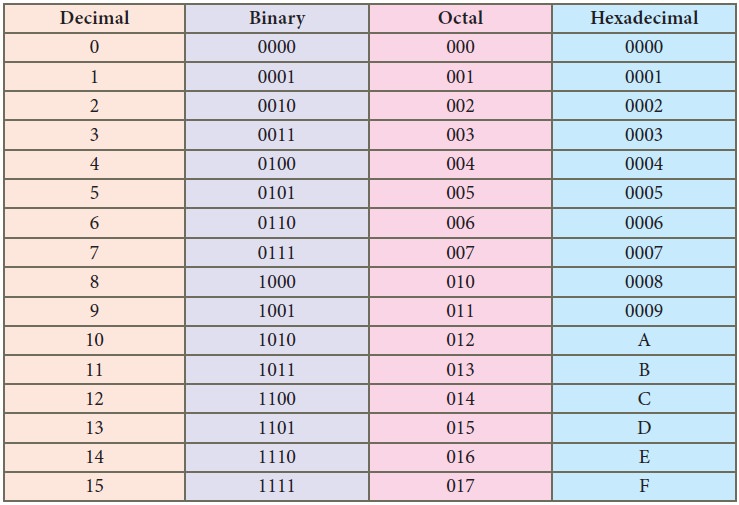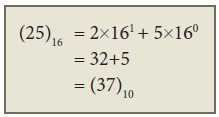Chapter: 11th Computer Science : Chapter 2 : Number Systems
Different Types of Number Systems
Different Types of Number Systems

A numbering system is a way of
representing numbers. The most commonly used numbering system in real life is
Decimal number system. Other number systems are Binary, Octal, Hexadecimal
number system. Each number system is uniquely identified by its base value or radix. Radix or base is the count of number of digits in each
number system. Radix or base is the general idea behind positional numbering
system.
1. Decimal Number System
It consists of
0,1,2,3,4,5,6,7,8,9(10 digits). It is the oldest and most popular number system
used in our day to day life. In the positional number system, each decimal
digit is weighted relative to its position in the number. This means that each
digit in the number is multiplied by 10 raised to a power corresponding to that
digit’s position.
Example

2. Binary Number System
There are only two digits in the
Binary system, namely, 0 and 1. The numbers in the binary system are
represented to the base 2 and the positional multipliers are the powers of 2.
The left most bit in the binary number is called as the Most Significant Bit (MSB) and it has the largest
positional weight. The right most bit is the Least Significant Bit (LSB) and has the smallest
positional weight.

Example
The binary sequence (1101)2
has the decimal equivalent:

3. Octal Number System
Octal number system uses digits
0,1,2,3,4,5,6 and 7 (8 digits). Each octal digit has its own positional value
or weight as a power of 8.
Example
The Octal sequence (547)8
has the decimal equivalent:

4. Hexadecimal Number System
A hexadecimal number is
represented using base 16. Hexadecimal or Hex numbers are used as a shorthand
form of binary sequence. This system is used to represent data in a more
compact manner. Since 16 symbols are used, 0 to F, the notation is called hexadecimal.
The first 10 symbols are the same as in the decimal system, 0 to 9 and the
remaining 6 symbols are taken from the first 6 letters of the alphabet
sequence, A to F, where A represents 10, B is 11, C is 12, D is 13, E is 14 and
F is 15.
Table 2.2 Binary, Octal, Hexadecimal equivalent of Decimal Numbers

Example
The hexadecimal sequence (25)16
has the decimal equivalent:

Related Topics